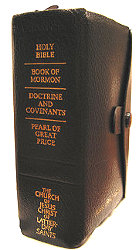In that peaceful Amish countryside... an outbreak of beard-snipping
Body
“The beard is a key symbol of masculine Amish identity,” said Donald B. Kraybill, a sociologist and expert on the Amish at Elizabethtown College in Pennsylvania. The women view their long hair, kept in a bun, as their “glory,” Dr.



Discussion